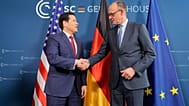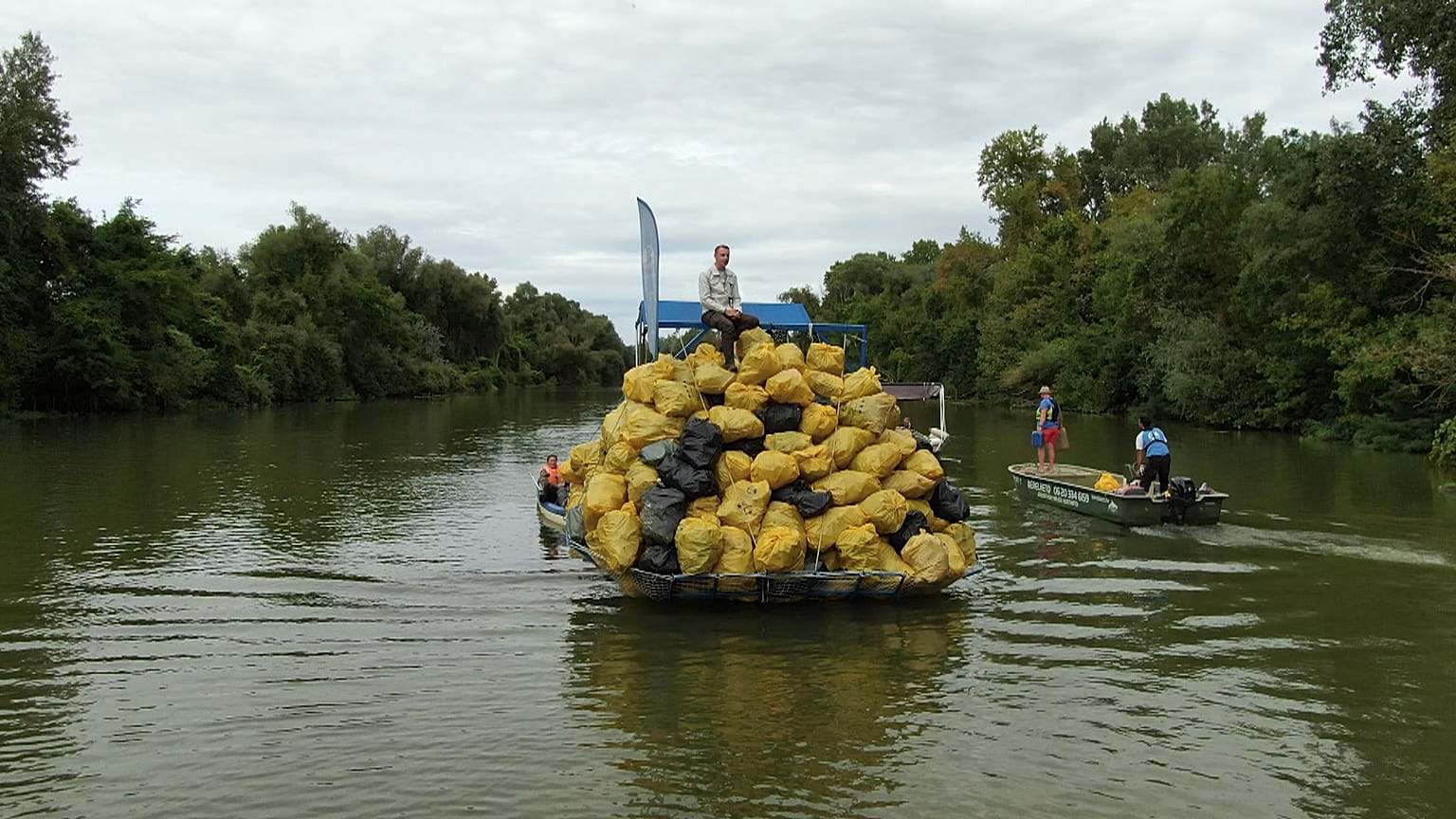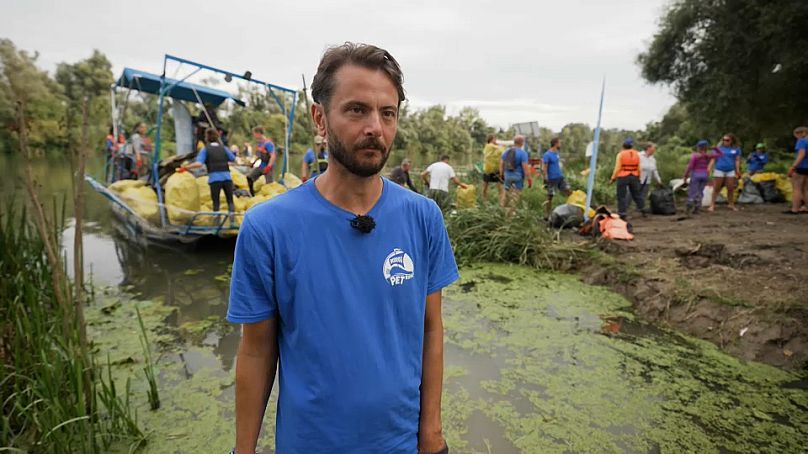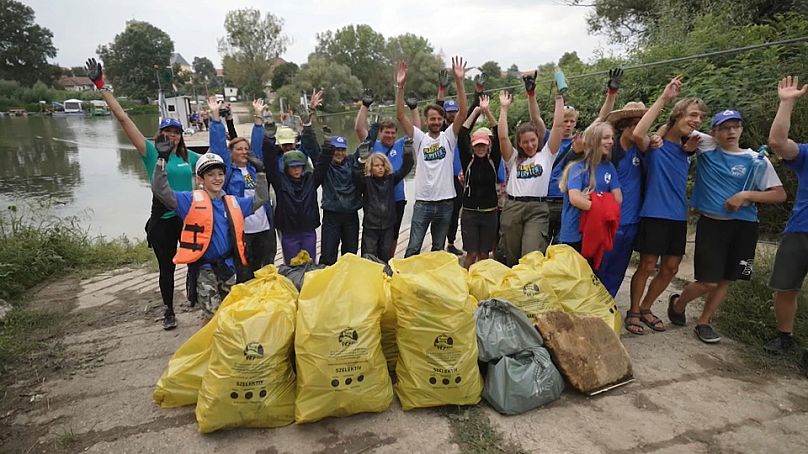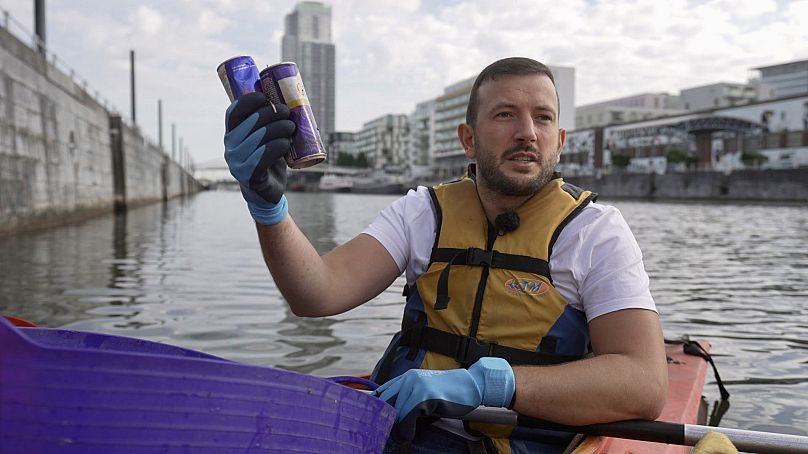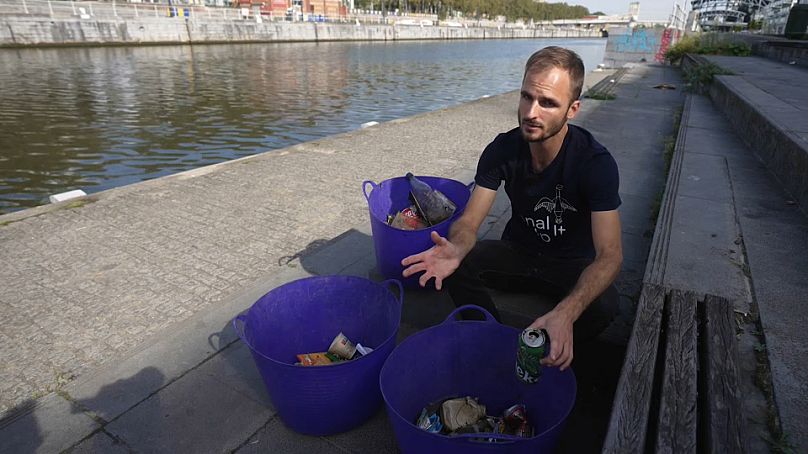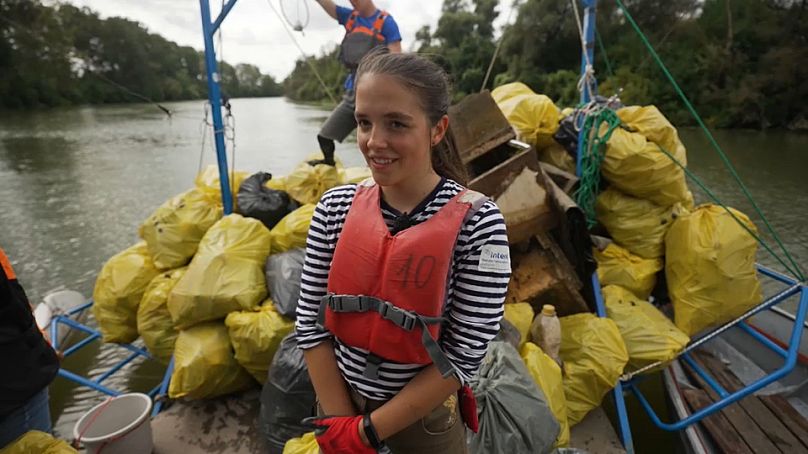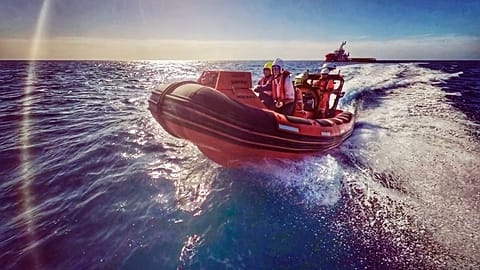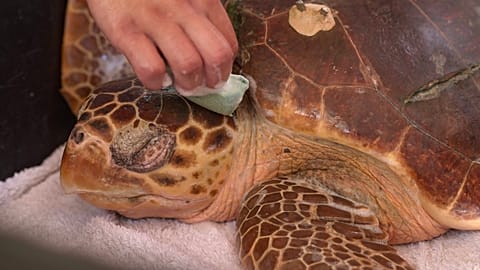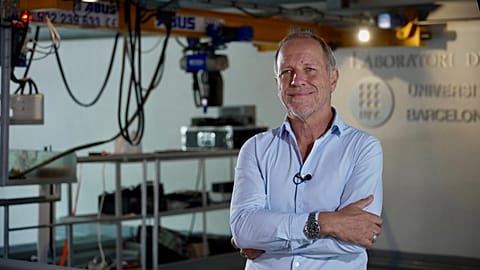80% of ocean plastic pollution comes from rivers and canals carrying urban litter into the seas. We speak to the teams and volunteers leading the fight against Europe's plastic problem.
Ten million tonnes of plastic end up in our oceans every year. But more and more people across Europe are taking matters into their own hands to stop the flow of plastic litter well before it reaches the sea.
 ADVERTISEMENT
ADVERTISEMENT
 ADVERTISEMENT
ADVERTISEMENT
The Bodrog River, a beautiful natural site in northeastern Hungary, is marred by discarded plastic bottles carpeting its banks.
"You may ask, where does it come from? It's from Ukraine's Transcarpathia [region]. Most of the waste is from there. And the reason is that basically in Transcarpathia, there is no waste management — they just dump the waste into the flood plain, and when the flood comes, it picks it up and spreads it in Hungary," explained Miklós Gyalai-Korpos, the project manager of Plastic Cup.
Plastic Cup is an annual showdown of competing teams cleaning up the banks of Hungarian rivers.
This year, over 150 enthusiasts hit the Bodrog for four days, kayaking and rafting, scooping up plastic as they go.
And there's a lot to scoop. About 90 tonnes of plastic waste cover a 50-kilometre stretch of this riverbank alone. If not removed, the litter is headed for the Danube, then the Black Sea, and eventually, the oceans.
In addition to cleaning up, one group of youngsters is also helping with a scientific study on plastic pollution.
"Children and young adults go to the river, and they collect trash in a scientific way," said Simone Berk, the project coordinator for Plastic Pirates — Go Europe!
"We collect the data, we categorise it, and then it's uploaded to an online platform so scientists can use it for their research."
Backed by the EU, Plastic Pirates — Go Europe! is a citizen science initiative that gathers young volunteers across a dozen countries.
Following a strict methodology, they clean a designated 200-square-metre area and then carefully document every piece of litter they find.
"It makes me sad that there are people in the world who throw away so much litter just like that. But it’s great that there are people willing to clean up after others," said volunteer Sára Szomráki.
Scientists still lack data on the plastic pollution trends in Europe, and such samplings help fill the gaps.
Plastic Pirates are quickly gaining momentum across the region.
"We've got Portugal, Spain. We've got Italy, we've got Belgium, Germany, Hungary, of course, where we're at right now. Latvia, Lithuania, Austria. Oh, and Georgia also just joined," Simone Berk told Ocean.
Canals and rivers: Tackling the problem at its source
The focus on riverbanks is intentional: Plastic Pirates rally under the slogan "The ocean starts here!"
The data shows that 80% of ocean plastic pollution comes from rivers and canals carrying urban litter into the seas.
Even Brussels, often called the "capital of Europe," hasn't fully addressed this problem yet. Its canal is far from pristine. Local group 'Canal it Up' organises community clean-ups to get people aware and involved.
On International Coastal Clean-up Day, the activists teamed up with European officials, including the EU Commissioner for Environment, Oceans and Fisheries, Virginijus Sinkevičius.
"You see bottles that could be avoided if you use reusable bottles. We caught quite a few coffee cups. Again, you can definitely reuse it. So reuse is important," said Virginijus Sinkevičius.
"Getting rid of single-use plastics I think is key. And I think many of things in this canal could be avoided if we, for example, would have a simple deposit system," he added.
The growing popularity of deposit return schemes
The EU has big goals: cut ocean plastic pollution and household waste in half by 2030. But progress is slow. While plastic litter on most coastlines does seem to be declining, the amount of packaging in municipal waste has actually gone up by 19% in the last decade.
A deposit return scheme, where empty packaging can be brought back to a collection point for a refund, is showing promise in cutting down waste — so the activists are pushing for Belgian stores and shoppers to fully embrace it despite the extra costs.
"We are getting surrounded by countries that have an efficient deposit system," explained Pieter Elsen, the founder of Canal It Up.
"The Netherlands just introduced it last year. This week, Poland introduced a deposit system. 15% and 11% of the trash we fish out of the canal are cans and plastic bottles. If we put a physical deposit system in place for these two packagings, we can get them out of nature overnight."
An international effort
Plastic waste travels down rivers and oceans, crossing borders — so solving this issue needs international teamwork.
The Hungarian crew behind the 'Plastic Cup' have joined forces with partners in Western Ukraine to prevent the river pollution problem at its source. And their annual cleanup campaigns are drawing in volunteers from different countries.
"Of course, we should all worry about the situation in Hungary the same way we should worry about the situation in Spain, in Germany, and we should all try to help each other as much as we can — because the problem is global," said Mark Borillo García, a European Solidarity Corps volunteer from Barcelona.
Over four days, the competitors scooped up 11 tonnes of trash. That's over 2,500 bags of waste that won't be polluting our oceans.
Vilja Molnár has been participating since she was nine.
"I think it's improving — it's getting more attention and that helps a lot. We have more children now than ever helping us out," Vilja told Ocean.
"I'm hoping for clean rivers and that people can enjoy this beautiful nature on its own, without the plastic."
All the gathered litter gets sorted, and the organisers say about two-thirds of it will be recycled.
"It's really just the tip of the iceberg. And we know that we can not remove everything from the flood plain," Miklós Gyalai-Korpos admitted. "I think the real solution is using less, so to prevent the formation of waste. And if you really need to consume something, then put it in the right place. In the right bin."
Prevent, reduce, reuse, recycle: the steps to turning the plastic tide are evident, and activists in many countries are setting an inspiring example to follow. Yet, globally the production of plastics is soaring, while the environmental progress is barely inching forward.
Truly cleaning up our rivers, seas, and oceans is going to need a worldwide push.



